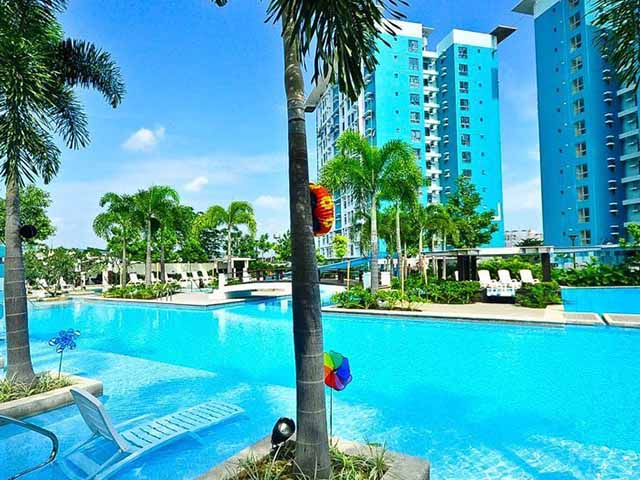Investing in property has long been a popular strategy for building wealth, and Singapore’s real estate market, known for its stability and growth potential, offers enticing opportunities for investors. Among the various property types, condominiums are particularly appealing due to their potential for rental income and capital appreciation. However, choosing the right condo for investment requires careful consideration of multiple factors. Here’s a comprehensive guide to help you make an informed decision.
1. Understand the Market Trends
Before diving into any investment, it’s essential to grasp the current market trends. In Singapore, the real estate market is influenced by factors such as government policies, economic conditions, and demand-supply dynamics.
Key Trends to Watch:
- Property Prices: Track the historical price trends and forecasted growth. Singapore’s real estate market has been known for its resilience, but prices can be cyclical.
- Government Policies: The government frequently updates policies affecting property investment, such as the Additional Buyer’s Stamp Duty (ABSD) and loan-to-value (LTV) ratios. Stay informed about these regulations as they can impact your investment decisions.
- Demand and Supply: Monitor new launches and the supply of condos in different districts. High demand in specific areas can drive up rental yields and property values.
2. Location, Location, Location
The location of your condo is one of the most critical factors in determining its investment potential. In Singapore, different districts offer varying advantages:
Prime Districts (1-4): These areas, including Orchard Road and Marina Bay, are known for their luxury properties and high rental demand. They generally offer lower rental yields but higher capital appreciation.
City Fringe Districts (5-14): Areas like Novena and Tiong Bahru provide a balance between rental yield and capital appreciation. They’re popular among expatriates and professionals due to their proximity to the city.
Suburban Districts (15-28): These areas, including Jurong and Tampines, often offer higher rental yields due to more affordable property prices and a growing tenant base.
Accessibility: Ensure the condo is well-connected by public transport and major roads. Proximity to MRT stations, bus stops, and key amenities can significantly enhance rental appeal.
3. Evaluate the Developer’s Reputation
The reputation of the developer can greatly influence the quality and future value of the condo. Established developers with a track record of delivering quality projects on time are often a safer bet.
Factors to Consider:
- Track Record: Research the developer’s previous projects and their performance in terms of quality, delivery, and market value.
- Financial Stability: A financially stable developer is less likely to face issues that could delay or compromise the project.
- Innovations and Quality: Developers known for incorporating innovative designs and high-quality finishes tend to create more desirable properties.
4. Assess the Condo’s Features and Amenities
The features and amenities of the condo can impact its rental potential and resale value. Evaluate the following aspects:
Unit Layout and Size: Ensure the unit’s layout is functional and meets the needs of potential tenants or future buyers. Spacious and well-designed units tend to attract higher rents and offer better resale value.
Facilities: Condos with attractive facilities like swimming pools, gyms, and landscaped gardens often have higher rental yields. Consider the quality and maintenance of these amenities.
Security and Privacy: A well-secured condo with adequate privacy features can be more appealing to tenants and buyers. Look for properties with reliable security systems and a good reputation for safety.
5. Calculate the Potential Returns
Assessing the potential returns on your investment is crucial for making a sound decision. Two key metrics to consider are rental yield and capital appreciation.
Rental Yield: This is the annual rental income divided by the property’s purchase price. A higher rental yield indicates better income potential. Compare yields in different areas to determine where you might get the best returns.
Capital Appreciation: Look at the historical appreciation rates of properties in the area. While past performance is not always indicative of future results, it can give you an idea of how the property’s value might grow over time.
Additional Costs: Factor in costs such as property tax, maintenance fees, and management fees. These costs can affect your net rental income and overall return on investment.
6. Review the Condo’s Legal and Financial Aspects
Ensuring that the condo meets legal and financial requirements is essential to avoid future complications.
Legal Due Diligence: Check the condo’s legal status and ensure that it complies with all regulatory requirements. Verify that there are no outstanding legal disputes or issues that could affect your investment.
Financial Assessment: Review the financial health of the condo’s management. Well-managed properties with healthy reserves are less likely to face financial difficulties that could impact your investment.

7. Seek Professional Advice
Navigating the real estate market can be complex, and seeking advice from professionals can provide valuable insights and guidance. Come and visit Emerald Of Katong to get more important information about condos for investment in Singapore.
Real Estate Agents: A knowledgeable real estate agent with experience in the Singapore market can help you identify suitable properties, negotiate deals, and navigate the buying process.
Financial Advisors: Consult with a financial advisor to assess how the investment fits into your overall financial strategy. They can help you understand the tax implications and financing options.
Legal Experts: Engage a lawyer to review contracts and ensure that all legal aspects of the transaction are in order.
Conclusion
Choosing the right condo for investment in Singapore involves a blend of research, strategic planning, and professional guidance. By understanding market trends, evaluating locations, assessing developers, and calculating potential returns, you can make an informed decision that aligns with your investment goals. Remember, a well-chosen property not only offers financial rewards but also provides long-term value and satisfaction.
